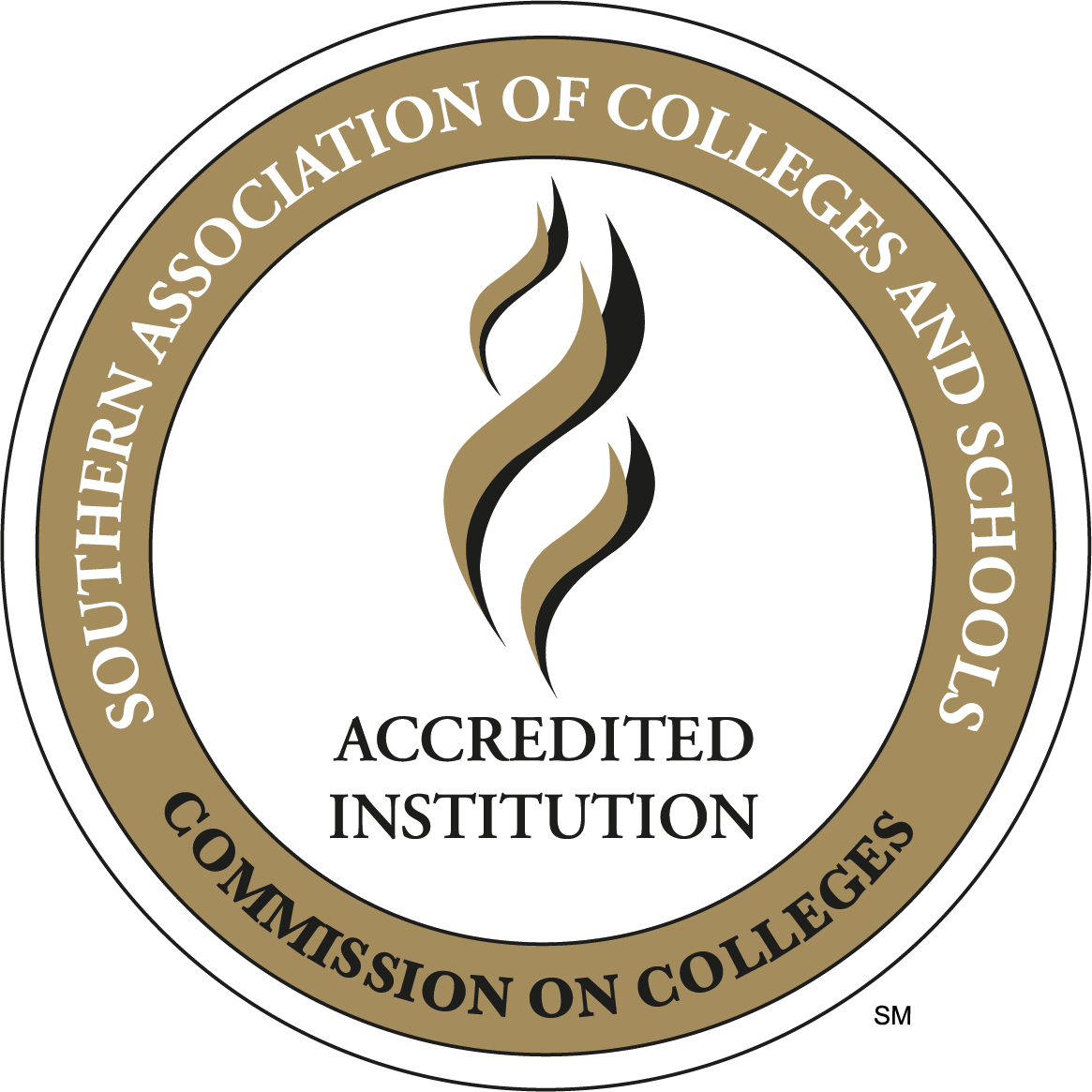- Home
- Institutional Effectiveness
Institutional Effectiveness
Southern Regional Technical College (SRTC) defines Institutional Effectiveness (IE) as the positive correlation of results to expectations. SRTC designed and implemented an institutional effectiveness system that is ongoing, integrated, and includes College-wide research-based planning and evaluation processes. The IE system integrates specific research, data collection, evaluation, assessment, analysis, planning, budgeting, and implementation processes.
The IE system provides for a systematic review of College Mission, Goals, and Outcomes. It ensures that expected outcomes of all units and programs and program student learning outcomes are identified and assessed; results are used for improvement in planning and budgeting; plans are implemented and evaluated; and improvements are documented. The process is designed to continuously improve programs, services, and student learning and to demonstrate the progress of the College in fulfilling its stated Mission.
About the Institutional Effectiveness Division
Accreditation
Accreditation processes are coordinated by the Vice President for Institutional Effectiveness, Carla Barrow, the SACSCOC Accreditation Liaison, who may be reached by calling (229) 225-3978 or via email at cbarrow@southernregional.edu. The SRTC Official Accreditation Statement is located below:

SRTC Official Accreditation Statement
Southern Regional Technical College is accredited by the Southern Association of Colleges and Schools Commission on Colleges (SACSCOC) to award Associate of Science Degrees and Associate of Applied Science Degrees. Degree-granting institutions also may offer credentials such as certificates and diplomas at approved degree levels. Questions about the accreditation of Southern Regional Technical College may be directed in writing to the Southern Association of Colleges and Schools Commission on Colleges at 1866 Southern Lane, Decatur, GA 30033-4097, by calling (404) 679-4500, or by using information available on SACSCOC’s website (www.sacscoc.org).
As required by SACSCOC, the Student Achievement Data information can be found on the Student Achievement Goals webpage.
To find out more about the history of accreditation at SRTC, and/or to find specific programmatic accreditation information about a SRTC program, visit the Accreditations webpage.
Perkins Federal Grant Requirements
As a public post-secondary institution offering career and technical education programs, Southern Regional Technical College is eligible to receive special grant funding through the Technical College System of Georgia called the Strengthening Career and Technical Education for the 21st Century Act (Perkins Federal Grant) to assist students in their college journey. The Perkins Federal Grant is administered by the United States Department of Education. The Perkins Federal Grant is the primary federal funding source for secondary and post-secondary career and technical education (CTE) programs that are critical for preparing youth and adults, including immigrants, for jobs in local and regional economies.
Annually, SRTC submits to TCSG a Perkins Local Application and one-year budget in order to receive Perkins Federal Grant funds. Included in the local application is the results of the comprehensive needs assessment required to be completed every two-years. Each college within the Technical College System of Georgia (TCSG) is required to implement the requirements outlined in the Perkins Federal Grant to conduct a comprehensive needs assessment of career and technical education (CTE). Career and technical education programs are those that prepare students for an occupation. The Perkins Federal Grant requires colleges to conduct the comprehensive needs assessment in consultation with a diverse group of stakeholders by evaluating how the career and technical education program offerings measure on the following elements: (1) Student performance on federal accountability indicators, (2) Alignment to labor market needs, (3) Scope, size and quality of programs offered, (4) Progress toward implementing programs and programs of study, (5) Recruitment, retention and training of faculty and staff, and (6) Progress toward improving access and equity. As part of the comprehensive needs assessment, Southern Regional Technical College reviews multiple years of Perkins data, provided by the Technical College System of Georgia, from the following core indicators of performance: P1 - Placement (including continuing higher education), P2 - Completion/Graduation, and P3 - Non-Traditional Concentration. In addition, data reviewed is aggregated and disaggregated data by the populations and sub-groups described in the Perkins Federal Grant. Special Populations include: individuals with disabilities; individuals from economically disadvantaged families, including low-income youth and adults; individuals preparing for non-traditional fields; single parents, including single pregnant women; out of-workforce individuals (previously displaced homemakers); English learners (previously LEP); homeless youth; youth who are in, or have aged out of, the foster care system; and youth with a parent who is on active duty in the armed forces. To conclude the needs assessment process, the separate analyses is merged into one set of findings and stakeholders are engaged in setting a future vision for addressing these needs, including deciding which programs and activities to prioritize for funding in the local application budget. The College then prepares a one-year Perkins Budget supporting the analysis of the comprehensive needs assessment.
The Vice President for Institutional Effectiveness is responsible for coordinating the preparation of the Perkins Federal Grant process including the Local Application submission and documentation, Comprehensive Needs Assessment process, and Perkins Budget implementation and management.
Additional Links:
College Mission and Strategic Plan
College and Program Accreditations
SACSCOC Institutional Details for SRTC
TCSG Accountability and Institutional Effectiveness
Contact Us:
Carla Barrow
Vice President for Institutional Effectiveness
SACSCOC Accreditation Liaison
cbarrow@southernregional.edu
Phone: (229) 225-3978
Mobile: (229) 672-0087
Nancy Fitzgerald
Director for Institutional Effectiveness
Office: Thomasville, Building A-248
229-225-5038
nfitzgerald@southernregional.edu
Don Kurtz
Institutional Research Coordinator
dkurtz@southernregional.edu
Phone: (229) 225-3979